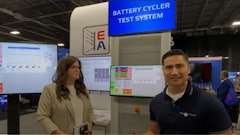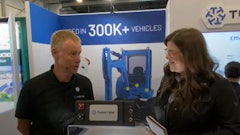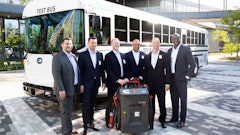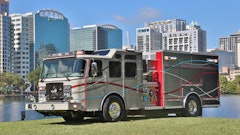Building on President Obama's Climate Action Plan to build a 21st century transportation sector and reduce greenhouse gas emissions, the Energy Department announced today more than $45 million for thirty-eight new projects that accelerate the research and development of vehicle technologies to improve fuel efficiency, lower transportation costs, and protect the environment in communities nationwide.
"By partnering with universities, private industry, and our national labs, the Energy Department is helping to build a strong 21st century transportation sector that cuts harmful pollution, creates jobs, and leads to a more sustainable energy future," says Energy Secretary Ernest Moniz. "By improving the fuel economy of our cars and trucks, we can save families and businesses money at the pump and better protect our air and water."
The Obama Administration has taken unprecedented steps to improve the fuel efficiency of American vehicles, establishing the toughest fuel economy standards for passenger vehicles in U.S. history. These standards are expected to save consumers $1.7 trillion at the pump—or more than $8,000 in costs over the lifetime of each vehicle—and eliminate six billion metric tons of carbon pollution. Innovative technologies and manufacturing are helping U.S. automakers achieve the goals of this historic agreement, and the investment announced today will help provide new technologies and innovations to enable automakers to continue to improve vehicle fuel efficiency.
Through the Advanced Vehicle Power Technology Alliance between the Energy Department and the Department of the Army, the Army is contributing an additional $3 million in co-funding to support projects focused on lightweighting and propulsion materials, batteries, fuels, and lubricants. "Working with the Energy Department, we are accelerating the development and deployment of cutting-edge technologies to strengthen our military, economy, and energy security," says Dr. Paul Rogers, director the U.S. Army Tank Automotive Research, Development, and Engineering Center.
The 38 announced projects span five major areas critical to advanced transportation technologies, such as lightweighting and propulsion materials as well as affordable, efficient batteries, power electronics, fuels and lubricants, and efficient heating, ventilation and air conditioning systems, and includes:
- Advanced lightweighting and propulsion materials—15 projects, $10.2 million: Advanced materials are essential for boosting the fuel economy of cars and trucks while maintaining and improving safety and performance. Next generation lightweight materials can reduce passenger car weight by up to 50%. Reducing a vehicle's weight by just 10% can improve fuel economy by 6 to 8%. These projects will conduct research on lightweight materials—such as advanced high-strength steel, magnesium, and aluminum—that allow vehicle manufacturers to include electric drive components, electronic systems and emissions control equipment without increasing vehicle weight.
- Advanced batteries—13 projects, $22.5 million: In the last four years, the cost of a plug-in electric vehicle battery has come down by nearly 50%. The awards announced today will help improve cell chemistry and composition, develop advanced electrolytes, and create new battery design tools—helping to further reduce costs. Broadly, the projects aim to cut battery size and weight in half, while improving efficiency and performance.
- Power electronics—four projects, $8 million: Compared to silicon-based technologies, wide bandgap semiconductors—such as silicon carbide and gallium nitride—can operate at higher temperatures, have greater durability and reliability, and can lower the cost and improve performance of plug-in electric vehicle inverters. Separately, new approaches to enable high-temperature operation and cost reduction for capacitors in these inverters will also help to reduce the cost of vehicle power electronics. These projects will contribute to reducing the cost of a plug-in electric vehicle inverter by more than 30%.
- Advanced heating, ventilation, and air conditioning systems—two projects, $4 million: Reducing the impact of heating and cooling on plug-in electric vehicles can significantly increase all-electric driving range. These two projects are focused on developing innovative heating and cooling technologies that reduce battery demands and improve range by 20% to 30%.
- Fuels and lubricants—four projects, $2.5 million: These projects will develop advanced fuels and lubricants that can reduce friction losses and increase the efficiency of cars already on the market and next generation passenger vehicles.
Read the full list of the 38 projects.
These new projects support the goals of the Energy Department's EV Everywhere Grand Challenge, a broader initiative to make plug-in electric vehicles as affordable and convenient to own and drive as today's gasoline-powered vehicles within 10 years.






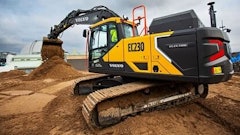


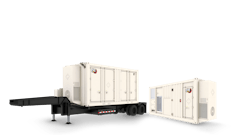

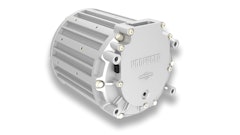
![Freightliner4[1]](https://img.oemoffhighway.com/files/base/acbm/ooh/image/2023/10/Freightliner4_1_.653bd134621e1.png?auto=format%2Ccompress&fit=crop&h=135&q=70&w=240)
